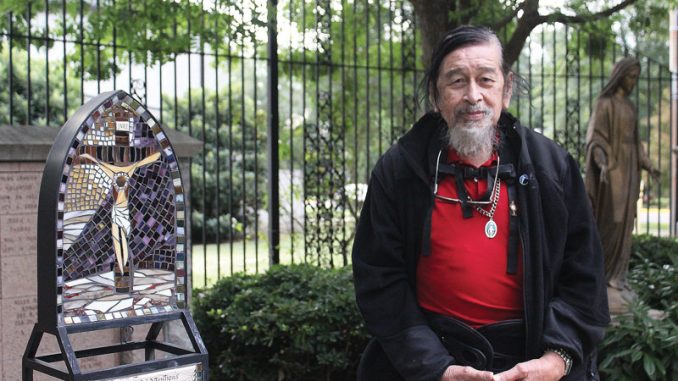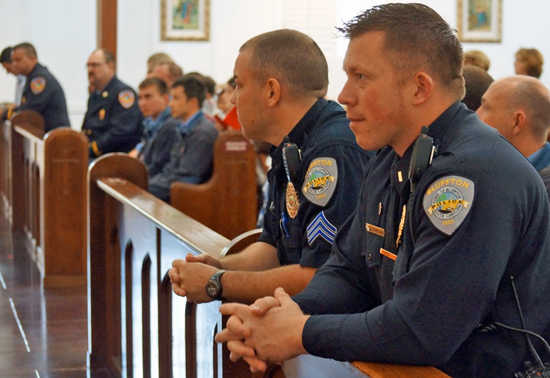
COLUMBIA—Before the novel coronavirus pandemic hit, Michael Padua’s days followed a specific routine. After morning Mass at St. Joseph Church, he would head out to visit homebound and hospitalized Catholics around the Midlands.
Wednedays and Sundays were special. That was when Padua made his way to the Dorn VA Medical Center on nearby Garners Ferry Road to visit veterans being treated there, including those staying on the Warriors Walk hospice unit.
He brought them the Eucharist, handed out rosaries and prayed with them. But most of the time what the men wanted was something even simpler — conversation and the comforting presence of another person.
“A lot of these veterans are like forgotten people — they’ve done so much for their country but have no one to visit them, and they just want someone to talk to and share their time with,” Padua said.
His dedication to the veterans — clocking 316 hours of volunteer time at the VA over four years — recently led the Columbia resident to receive a Voluntary Service Certificate from the national Department of Veterans Affairs and the Columbia VA Health Care System. He has no idea who nominated him for the award. It just showed up in the mail.
And while he’s proud of it, Padua is more concerned about the veterans currently at Dorn who he can’t visit now because of coronavirus restrictions. Many housed at Dorn and on a wing at the Tucker Nursing Center a few miles away either have no family in the area or none at all.
Padua’s concern for veterans comes naturally because he is the product of a military family and a veteran himself. He was born in the Philippines but his father later moved the family to the U.S. and served in the Army, where he was stationed at Fort Jackson in Columbia.
Padua meanwhile served in the U.S. Air Force for three and a half years in the late 1950s, stationed first in Savannah and then Greenland. He later moved back to Columbia, married and raised five children.
A cradle Catholic, he started volunteering to make home visits and serve as an extraordinary minister of Holy Communion about 10 years ago. He became involved at the VA after a fellow parishioner told him about the need for someone to visit veterans in the area.
Padua also is there to help the faithful who are currently in uniform. Before the pandemic, he frequently volunteered at Fort Jackson on weekends by setting up for Sunday Mass, which regularly attracts hundreds of soldiers.
The need for volunteers like Padua is crucial in South Carolina, which has an exceptionally large veteran population because it is home to several military installations and attracts retirees from all over the country.
The Columbia VA Health Care System serves an estimated 81,000 veterans a year at seven locations in the Upstate, Midlands and the Pee Dee region, while the Ralph H. Johnson VA Medical Center in Charleston serves about 75,000 veterans in 21 counties in South Carolina and Georgia.
Outreach to veterans on all levels has become more important in the past 10 years, especially in the area of health care.
A dramatic rise in the number of suicides among the population nationwide has led for calls from state and national legislators for more mental health programs through the VA.
Volunteers like Padua can’t provide professional mental health care, but they can be there to listen to lonely veterans, pray with them and keep them company.
Padua said he mainly serves older veterans who served in Vietnam and Korea, although he has met some from more recent campaigns such as Desert Storm. He even has a few World War II vets that he still visits.
“When I go to visit a Catholic veteran, if he has a roommate who is non-Catholic I’ll ask him if he wants to pray the Lord’s Prayer together or just to talk,” he said.
“Sometimes the veterans will ask for spiritual guidance or advice on how to get active again in the Church. But most of the time they just want to talk. Some of them would keep you there all day if they could because they’re not from this area, and they’re lonely,” Padua said. “This is the least I can do for people who already did so much for us.”


